#Datacamp
Explore tagged Tumblr posts
Text
Por cierto, estoy en Colombia
22 de April de 2024 📍Cali, CO 🇨🇴 🧠 denken: diese Limbo ist furchtbar.💗 fühlen: müde📖 lesen: Stellarlune (Keeper of the Lost Cities #9) von Shannon Messenger📺 sehen: Bones (für dritten Mal) 💻Data Scientist/Analyst Ich fühle mich in diesem Teil meines Lebens festgefahren. Ich muss mich organisieren. Und als der nächste Schritt Projekte zu machen, aber das Problem ist, dass ich fühle mich nicht…

View On WordPress
#data analysis#data science#datacamp#german#japanese#korean#language learning#passive-income#start-up
0 notes
Photo

Using DataCamp for getting familiar with Data Science concepts
This is a short preview of the article: I am sharing a collection of classes in DataCamp that may help you in getting familiar with data science concepts in a practical manner. DataCamp is a paid service, however, students can normally use it for free. Probably the university where you are studying have an institutional subscription
If you like it consider checking out the full version of the post at: Using DataCamp for getting familiar with Data Science concepts
If you are looking for ideas for tweet or re-blog this post you may want to consider the following hashtags:
Hashtags: #Data, #DataScience, #Datacamp, #Python, #Tensorflow
The Hashtags of the Categories are: #BigData, #MachineLearning, #Programming, #Python
Using DataCamp for getting familiar with Data Science concepts is available at the following link: https://francescolelli.info/big-data/using-datacamp-for-getting-familiar-with-data-science-concepts/ You will find more information, stories, examples, data, opinions and scientific papers as part of a collection of articles about Information Management, Computer Science, Economics, Finance and More.
The title of the full article is: Using DataCamp for getting familiar with Data Science concepts
It belong to the following categories: Big Data, Machine Learning, Programming, Python
The most relevant keywords are: data, Data Science, Datacamp, Python, Tensorflow
It has been published by Francesco Lelli at Francesco Lelli a blog about Information Management, Computer Science, Finance, Economics and nearby ideas and opinions
I am sharing a collection of classes in DataCamp that may help you in getting familiar with data science concepts in a practical manner. DataCamp is a paid service, however, students can normally use it for free. Probably the university where you are studying have an institutional subscription
Hope you will find it interesting and that it will help you in your journey
I am sharing a collection of classes in DataCamp that may help you in getting familiar with data science concepts in a practical manner. DataCamp is a paid service, however, students can normally use it for free. Probably the university where you are studying have an institutional subscription or, if that is not the case,…
1 note
·
View note
Text
Miksi sivustoni nimi on datatiede?
Lyhyt vastaus: hakukoneoptimointi. Olen siirtymässä verkko-ohjelmoinnista datatieteen puolelle. Tahdon että blogini löytyy hakusanalla datatiede. Minut voi palkata datatiedeprojektiin osuuskuntamme kautta. Täytä kontaktisivulta löytyvä lomake ja lähetä se. Seuraavaksi pitkä vastaus. Edelliset sivuni olivat toiminimeäni varten, mutta ensimmäinen tuoteideani oli tehdä WooCommerceen…
View On WordPress
#BASIC#booksprint#DataCamp#datatiede#FLOSS Manuals#Helsingin Yliopisto#Indymedia#kehitysmaatutkimus#Netflix#NLP#O&039;Reilly#OpenCV#PHP#Python#Spacy#tilastotiede#valtiotieteiden maisteri#viestintä#WooCommerce
0 notes
Text
Unlock Your Data Analysis Potential with Free Python Certification
Free Python Certification
Unlock Your Data Analysis Potential with Free Python Certification
In today's big data era, the demand for skilled data analysts is soaring. Learning Python is a pivotal step in this career path. DataCamp provides an exceptional opportunity to earn a free Python certification through their free week offer. This initiative allows you to dive into various courses designed to enhance your data analysis skills using Python.
Why Choose Python for Data Analysis?
Python's popularity in data analysis stems from its simplicity, versatility, and robust ecosystem. Its syntax is beginner-friendly, and with libraries like NumPy and pandas, it streamlines data manipulation and visualization. An active global community offers extensive resources for learning and troubleshooting.
About DataCamp
DataCamp is an online learning platform specializing in data science education. Its interactive courses focus on Python, R, and SQL, featuring hands-on exercises and projects. DataCamp's free Python certification track includes courses like "Introduction to Python" and "Data Manipulation with pandas," culminating in a capstone project.
Maximizing DataCamp's Free Week
To optimize this opportunity, adopt a structured approach: familiarize yourself with Python, understand the course structure, and allocate dedicated learning time. Engage with the community for support and practice coding extensively to solidify your understanding.
Preparing Your Environment
Before starting, install Python and essential libraries such as pandas for data cleaning and analysis. Setting up your environment is crucial for seamless learning.
Beyond Python: Exploring R
While Python is powerful, exploring R can enhance your data analysis capabilities, offering superior statistical computing and visualization skills. DataCamp also provides a "Data Analyst with R" track for comprehensive learning.
Conclusion
DataCamp's free week is a unique chance to earn a free Python certification, marking your proficiency in a sought-after skill. This certification can significantly boost your career prospects, allowing you to confidently navigate the big data landscape.
free Python certification
0 notes
Text
Top 6 Data Science AI Tools for Enhanced Analytics and Insights in 2023
In the realm of Generative AI, with the notable launches of ChatGPT, GPT-4, BARD, and a host of other impressive AI tools, it’s clear that we stand at the precipice of a technological revolution that will forever transform nearly every sector of the economy.
Data science is poised for significant change as an integral part of AI development. The recent breakthroughs in AI could reshape the landscape of data science itself. They promise to streamline coding processes, empowering data professionals to create advanced tools and AI models with incredible speed and efficiency.
This article presents a curated selection of the six most remarkable data science AI tools that are on the brink of revolutionizing data science. While we anticipate a multitude of data science AI tools to emerge and enhance the dynamic realm of data and machine learning, let’s focus on these five exceptional innovations for now.
#Data Science#Data Science AI Tools#AI Tools for Data Science#ChatGPT#Bard AI#GitHub Copilot#Hugging Face#Bing AI#DataCamp Workspace AI
0 notes
Text
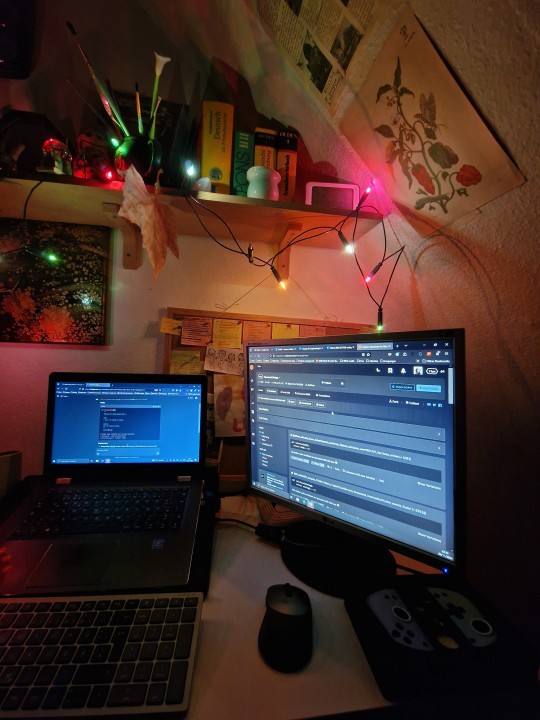
Day 4/100
I've been away for a bit since everything has been too much lately. I'm working on coming back tho
Studying Python since the biggest part of the final grade for Programming II is gathering points on CodeWars and DataCamp. I know. I'm also confused. Fingers crossed I learn some.
#studyblr#university#uni#coffee#college#uni student#university student#bookblr#dark academia#information management#study blog#studyspo#study motivation#study aesthetic#programming#python#codewars#uni student aesthetic#student aesthetic#student life#student#library sciences#information science
65 notes
·
View notes
Text
veal is fucking deranged. a summary.
Please read the posts linked below for a proper chronological detailing of events:
Post #1 : "Rhys eat shit (a summary of events)"
Post #2: Zaga gets doxxed
Additional details: here, here
On with the update.
Veal is the doxxer. It was Veal the whole time. Yep. Lets go through today's events in order.
This afternoon, Dabi had DMed me in regards to the recent speculation we had cast on them, as well as trying to clear Civ's friend group. I'll spare the specifics of the shoddy evidence I received, because it's pointless now anyways. My point in bringing this up is to make note of a certain detail I looked a bit closer into, the Canadian VPN.
When a new user logs into your Discord account, Discord sends a confirmation email with the location and IP of where the login occurred. So, when Veal's account was "taken over" by TTV, Re-uprising staff was (presumably) given the IP from the email, and then traced that IP address to have been through a VPN. This was the IP data as well as the explanation from Zaga, who googled the info after it was found:


The fatal flaw here was poor research. When looking more closely at these and doing some research on my own, it was hard to find a link from Datacamp LTD and CDN77-TOR to eStructure, important to note because Datacamp is an American company and thus would rule out the doxxer only being able to live in Canada. Zaga had made the connection to eStructure because they trusted the google AI result.



The screen recorded search history also showed they had looked this info up, I unfortunately can't upload the whole video because it's over two minutes, but here's a screenshot:

They also sent this video to show where the Google AI had most likely pulled the info from, so suffice to say it probably was an honest mistake
Anyway, as for how Veal was discovered.
When Re-Up was going through their mass re-verification, the TTV account was banned from the server. Then, last night, it was discovered that veal's account was banned from re-up, with seemingly no way to unban them




There was no solution to this, until tonight when they had the idea to try and unban TTV.


Veal's current discord account, the new one they made after the old one was "compromised" by TTV, is the terratimevents discord account repurposed. That means in this post, Veal is just talking to themself. That means that every subsequent action here was done by Veal. That means Veal doxxed Zaga. Veal did it all.
As re-up staff is putting 2 and 2 together, Veal sends a weird message into the chat. Re-up staff decided to confront them.





In an absolute game-changer of a maneuver, Veal decides to blame everything on...an alter.





Discussion is then had with Rhys, who helps piece together more motives.



So. Veal is fucking deranged. It has been said they could be in a manic episode, hence the self-doxxing and absolute scorched earth type shit, I don't really know much about mania so I can't comment. Personally, the alter shit sounds like a load of bull to me and its just all too convenient. And either way, pinning it on some guy in your head still makes you responsible for it, just in some stupid, roundabout way.
There are several apologies in order here, I'll speak on behalf of myself and re-up in saying this truly wasn't expected at all. This anon was the only one that actually guessed it, and honestly could have very well been Veal themself acting out some crazy admission of guilt. Retroactively reading this week's posts and seeing in hindsight that the six-part saga (1, 2, 3, 4, 5, 6) very well could have been them too trying to make others involved look bad, while also haphazardly throwing together guilty thoughts. In my defense, doxxing yourself to a bunch of people and framing the group you hate IS a really crazy thing to do. I just wasn't aware the level of crazy we were dealing with when talking to Veal.
To Rhys, Civ, and Dabi, I sincerely apologize. Veal had crafted the narrative specifically to implicate your group and gave details that would only lead there, such as using their own vents in self-submitted hate anons. Because of the timing and the sheer absurdity it would take for someone to string up the whole operation, we didn't cast doubt onto them, because logically, who would do all that over some guy who wronged you on the internet?? However, this caused your names to be dragged through the mud, assumedly Veal's primary goal. Despite any personal dislike or petty beef I and others have, it's unanimously agreed upon that framing you all for the crime was incredibly wrong. If anyone wants a more personal, in-depth apology, or if you just want to run victory laps around me (completely warranted honestly), my DMs are open on here and on Discord. @/tvntss
In conclusion: Veal is an incredibly depraved individual. Mentally ill, possibly. But overall depraved. Do not interact with them, and report them if you come across them in the wild. It seems they're deleting all public socials, which barely scrapes the surface of being retribution, but at the very least they won't have a platform.
Civ, Dabi, Rhys, and whoever else from that group are completely innocent in this one, a narrative was deliberately crafted and insisted upon to make them appear culpable, and it is my fault for not directly questioning Veal on shit myself. If it hadn't been for Veal being fucking stupid and making this tiny mistake, the group probably could have never been 100% without a doubt cleared simply because of the difficult to prove/disprove nature of so many things here. So lets all thank whatever God you pray to that Veal was stupid enough to keep using that account.
#closed species vent#terralien#closed species#terraliens#vent#veal#this post genuinely took me hours because ive just been fucking speechless#civ#rhys
25 notes
·
View notes
Text
Ten people i want to get to know better
tagged by: @kanedaslide
last song? Oxygen by Lacuna Coil
favorite colour? Black .. I like red too I guess.
currently watching? Shameless (USA)
last movie? Scream.. the latest one it was kinda shit 😂
sweet/spicy/savoury? All of them
relationship status? In a relationship 💍
current obsessions? Silent Hill 2 remake
last thing you googled? Datacamp
tagging: @noface8834 (obvi lol) ... annd @one-and-only-po @booklover-01040 @pennyl4n3 @rw47vr-key @zmayadw @yoi-thoughts ....no pressure 🫶🏻
29 notes
·
View notes
Text
instagram
Learning to code and becoming a data scientist without a background in computer science or mathematics is absolutely possible, but it will require dedication, time, and a structured approach. ✨👌🏻 🖐🏻Here’s a step-by-step guide to help you get started:
1. Start with the Basics:
- Begin by learning the fundamentals of programming. Choose a beginner-friendly programming language like Python, which is widely used in data science.
- Online platforms like Codecademy, Coursera, and Khan Academy offer interactive courses for beginners.
2. Learn Mathematics and Statistics:
- While you don’t need to be a mathematician, a solid understanding of key concepts like algebra, calculus, and statistics is crucial for data science.
- Platforms like Khan Academy and MIT OpenCourseWare provide free resources for learning math.
3. Online Courses and Tutorials:
- Enroll in online data science courses on platforms like Coursera, edX, Udacity, and DataCamp. Look for beginner-level courses that cover data analysis, visualization, and machine learning.
4. Structured Learning Paths:
- Follow structured learning paths offered by online platforms. These paths guide you through various topics in a logical sequence.
5. Practice with Real Data:
- Work on hands-on projects using real-world data. Websites like Kaggle offer datasets and competitions for practicing data analysis and machine learning.
6. Coding Exercises:
- Practice coding regularly to build your skills. Sites like LeetCode and HackerRank offer coding challenges that can help improve your programming proficiency.
7. Learn Data Manipulation and Analysis Libraries:
- Familiarize yourself with Python libraries like NumPy, pandas, and Matplotlib for data manipulation, analysis, and visualization.
For more follow me on instagram.
#studyblr#100 days of productivity#stem academia#women in stem#study space#study motivation#dark academia#classic academia#academic validation#academia#academics#dark acadamia aesthetic#grey academia#light academia#romantic academia#chaotic academia#post grad life#grad student#graduate school#grad school#gradblr#stemblog#stem#stemblr#stem student#engineering college#engineering student#engineering#student life#study
7 notes
·
View notes
Note
Hey hey! What r ur best resources for learning git/version control for windows? I feel like most video tuts ive come across are for apple/linux environments. I'm defo not looking in all the right places but ive also not followed up w/ this topic in a long while due to school lol. I would appreciate some help w/ this. Thank you so so much <3
Hiya 💗
I learnt Git via a bootcamp and apprenticeship so the resource I used was the teachers and I understood it, so I didn't use online resources but I went and looked around to find some.
Some videos:
Git and GitHub for Beginners Tutorial
Git Tutorial For Beginners 2022 | Git & Github Complete Tutorial
Some websites:
Mircosoft's Introduction to Git
Atlassian's Verison control tutorial
Datacamp's Git Cheat Sheet
FreeCodeCamp's 50 Git Commands You Should Know
W3School's Git Tutorial (good reference places, in my opinion)
Hope this helps! 💗
72 notes
·
View notes
Text
How to Transition from Biotechnology to Bioinformatics: A Step-by-Step Guide

Biotechnology and bioinformatics are closely linked fields, but shifting from a wet lab environment to a computational approach requires strategic planning. Whether you are a student or a professional looking to make the transition, this guide will provide a step-by-step roadmap to help you navigate the shift from biotechnology to bioinformatics.
Why Transition from Biotechnology to Bioinformatics?
Bioinformatics is revolutionizing life sciences by integrating biological data with computational tools to uncover insights in genomics, proteomics, and drug discovery. The field offers diverse career opportunities in research, pharmaceuticals, healthcare, and AI-driven biological data analysis.
If you are skilled in laboratory techniques but wish to expand your expertise into data-driven biological research, bioinformatics is a rewarding career choice.
Step-by-Step Guide to Transition from Biotechnology to Bioinformatics
Step 1: Understand the Basics of Bioinformatics
Before making the switch, it’s crucial to gain a foundational understanding of bioinformatics. Here are key areas to explore:
Biological Databases – Learn about major databases like GenBank, UniProt, and Ensembl.
Genomics and Proteomics – Understand how computational methods analyze genes and proteins.
Sequence Analysis – Familiarize yourself with tools like BLAST, Clustal Omega, and FASTA.
🔹 Recommended Resources:
Online courses on Coursera, edX, or Khan Academy
Books like Bioinformatics for Dummies or Understanding Bioinformatics
Websites like NCBI, EMBL-EBI, and Expasy
Step 2: Develop Computational and Programming Skills
Bioinformatics heavily relies on coding and data analysis. You should start learning:
Python – Widely used in bioinformatics for data manipulation and analysis.
R – Great for statistical computing and visualization in genomics.
Linux/Unix – Basic command-line skills are essential for working with large datasets.
SQL – Useful for querying biological databases.
🔹 Recommended Online Courses:
Python for Bioinformatics (Udemy, DataCamp)
R for Genomics (HarvardX)
Linux Command Line Basics (Codecademy)
Step 3: Learn Bioinformatics Tools and Software
To become proficient in bioinformatics, you should practice using industry-standard tools:
Bioconductor – R-based tool for genomic data analysis.
Biopython – A powerful Python library for handling biological data.
GROMACS – Molecular dynamics simulation tool.
Rosetta – Protein modeling software.
🔹 How to Learn?
Join open-source projects on GitHub
Take part in hackathons or bioinformatics challenges on Kaggle
Explore free platforms like Galaxy Project for hands-on experience
Step 4: Work on Bioinformatics Projects
Practical experience is key. Start working on small projects such as:
✅ Analyzing gene sequences from NCBI databases ✅ Predicting protein structures using AlphaFold ✅ Visualizing genomic variations using R and Python
You can find datasets on:
NCBI GEO
1000 Genomes Project
TCGA (The Cancer Genome Atlas)
Create a GitHub portfolio to showcase your bioinformatics projects, as employers value practical work over theoretical knowledge.
Step 5: Gain Hands-on Experience with Internships
Many organizations and research institutes offer bioinformatics internships. Check opportunities at:
NCBI, EMBL-EBI, NIH (government research institutes)
Biotech and pharma companies (Roche, Pfizer, Illumina)
Academic research labs (Look for university-funded projects)
💡 Pro Tip: Join online bioinformatics communities like Biostars, Reddit r/bioinformatics, and SEQanswers to network and find opportunities.
Step 6: Earn a Certification or Higher Education
If you want to strengthen your credentials, consider:
🎓 Bioinformatics Certifications:
Coursera – Genomic Data Science (Johns Hopkins University)
edX – Bioinformatics MicroMasters (UMGC)
EMBO – Bioinformatics training courses
🎓 Master’s in Bioinformatics (optional but beneficial)
Top universities include Harvard, Stanford, ETH Zurich, University of Toronto
Step 7: Apply for Bioinformatics Jobs
Once you have gained enough skills and experience, start applying for bioinformatics roles such as:
Bioinformatics Analyst
Computational Biologist
Genomics Data Scientist
Machine Learning Scientist (Biotech)
💡 Where to Find Jobs?
LinkedIn, Indeed, Glassdoor
Biotech job boards (BioSpace, Science Careers)
Company career pages (Illumina, Thermo Fisher)
Final Thoughts
Transitioning from biotechnology to bioinformatics requires effort, but with the right skills and dedication, it is entirely achievable. Start with fundamental knowledge, build computational skills, and work on projects to gain practical experience.
Are you ready to make the switch? 🚀 Start today by exploring free online courses and practicing with real-world datasets!
#bioinformatics#biopractify#biotechcareers#biotechnology#biotech#aiinbiotech#machinelearning#bioinformaticstools#datascience#genomics#Biotechnology
3 notes
·
View notes
Text
Retomando y construyendo nuevos hábitos
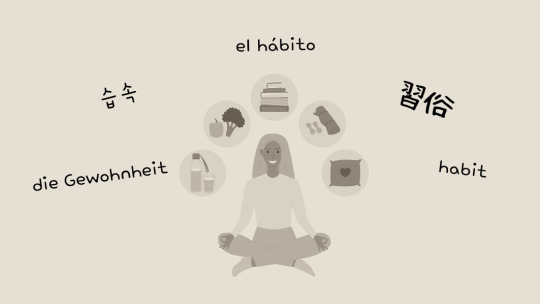
View On WordPress
#Au pair#datacamp#entrepreneur#german#japanese#kansei#korean#language learning#language learning apps#polygloss
0 notes
Text
2024.03.07
the year so far 🫧
JANUARY 🍑
passed my senior thesis project! super happy with how it turned out
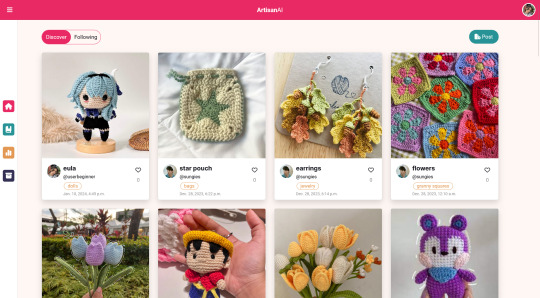
studied angular 2 and tailwind css
made my personal portfolio using angular and tailwind css <3 (still too busy to finish it though)
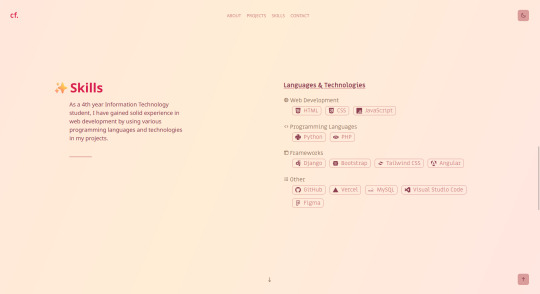
FEBRUARY 🥭
started an internship!!
got a free datacamp scholarship
learned qa automation using selenium
learned mochajs
learned sharepoint web development
learned node.js
developed a customer training registration system from scratch using node.js, sharepoint online, and bootstrap in two weeks!
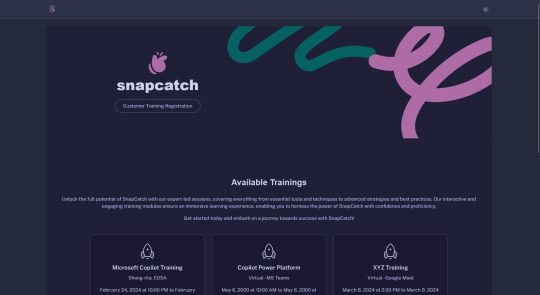
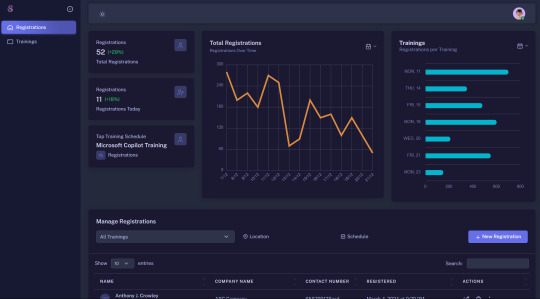
now i'm confused about what i really want to pursue as a career because i've been jumping from project to project, and language to language. i still enjoy ui/ux design and front-end development, but i also like back-end now! full-stack is really overwhelming and stressful but satisfying. i'm interested in automated testing too. i also like managing projects. so idk what i want right now but so far i've liked learning and experiencing everything!! aaaaaaaaaa
11 notes
·
View notes
Text

4 notes
·
View notes
Text


9.7.24
Its been almost a month since I wrapped up the term and quit my internship. To be honest.. it was a torture to be this jobless. And naturally my attention span got fucked. So i made a reading + study list and have some project ideas incase I do not get a new internship.
Currently reading Man & His Symbols.
Continuing Datacamp Associate data scientist course. (21% percent completed but may quit and start studying pytorch)
Will start studying ee circuits (bc its gonna be a massacre next semestre)
Also I should (must) start solving interview questions but thats the last thing i want to do.
4 notes
·
View notes
Text
How do I learn R, Python and data science?
Learning R, Python, and Data Science: A Comprehensive Guide
Choosing the Right Language
R vs. Python: Both R and Python are very powerful tools for doing data science. R is usually preferred for doing statistical analysis and data visualisations, whereas Python is much more general and currently is very popular for machine learning and general-purpose programming. Your choice of which language to learn should consider your specific goals and preferences.
Building a Strong Foundation
Structured Courses Online Courses and Tutorials: Coursera, edX, and Lejhro offer courses and tutorials in R and Python for data science. Look out for courses that develop theoretical knowledge with practical exercises. Practise your skills with hands-on coding challenges using accompanying datasets, offered on websites like Kaggle and DataCamp.
Books: There are enough books to learn R and Python for data science. You may go through the classical ones: "R for Data Science" by Hadley Wickham, and "Python for Data Analysis" by Wes McKinney.
Learning Data Science Concepts
Statistics: Know basic statistical concepts: probability, distribution, hypothesis testing, and regression analysis.
Cleaning and Preprocessing: Learn how to handle missing data techniques, outliers, and data normalisation.
Data Visualization: Expert libraries to provide informative visualisations, including but not limited to Matplotlib and Seaborn in Python and ggplot2 in R.
Machine Learning: Learn algorithms-Linear Regression, Logistic Regression, Decision Trees, Random Forest, Neural Networks, etc.
Deep Learning: Study deep neural network architecture and how to build and train them using the frameworks TensorFlow and PyTorch.
Practical Experience
Personal Projects: In this, you apply your knowledge to personal projects which help in building a portfolio.
Kaggle Competitions: Participate in Kaggle competitions to solve real-world problems in data science and learn from others.
Contributions to Open-Source Projects: Contribute to some open-source projects for data science in order to gain experience and work with other people.
Other Advice
Join Online Communities: Join online forums or communities such as Stack Overflow and Reddit to ask questions, get help, and connect with other data scientists.
Attend Conferences and Meetups: This is a fantastic way to network with similar working professionals in the field and know the latest trends going on in the industry.
Practice Regularly: For becoming proficient in data science, consistent practice is an indispensable element. Devote some time each day for practising coding challenges or personal projects.
This can be achieved by following the above-mentioned steps and having a little bit of dedication towards learning R, Python, and Data Science.
2 notes
·
View notes